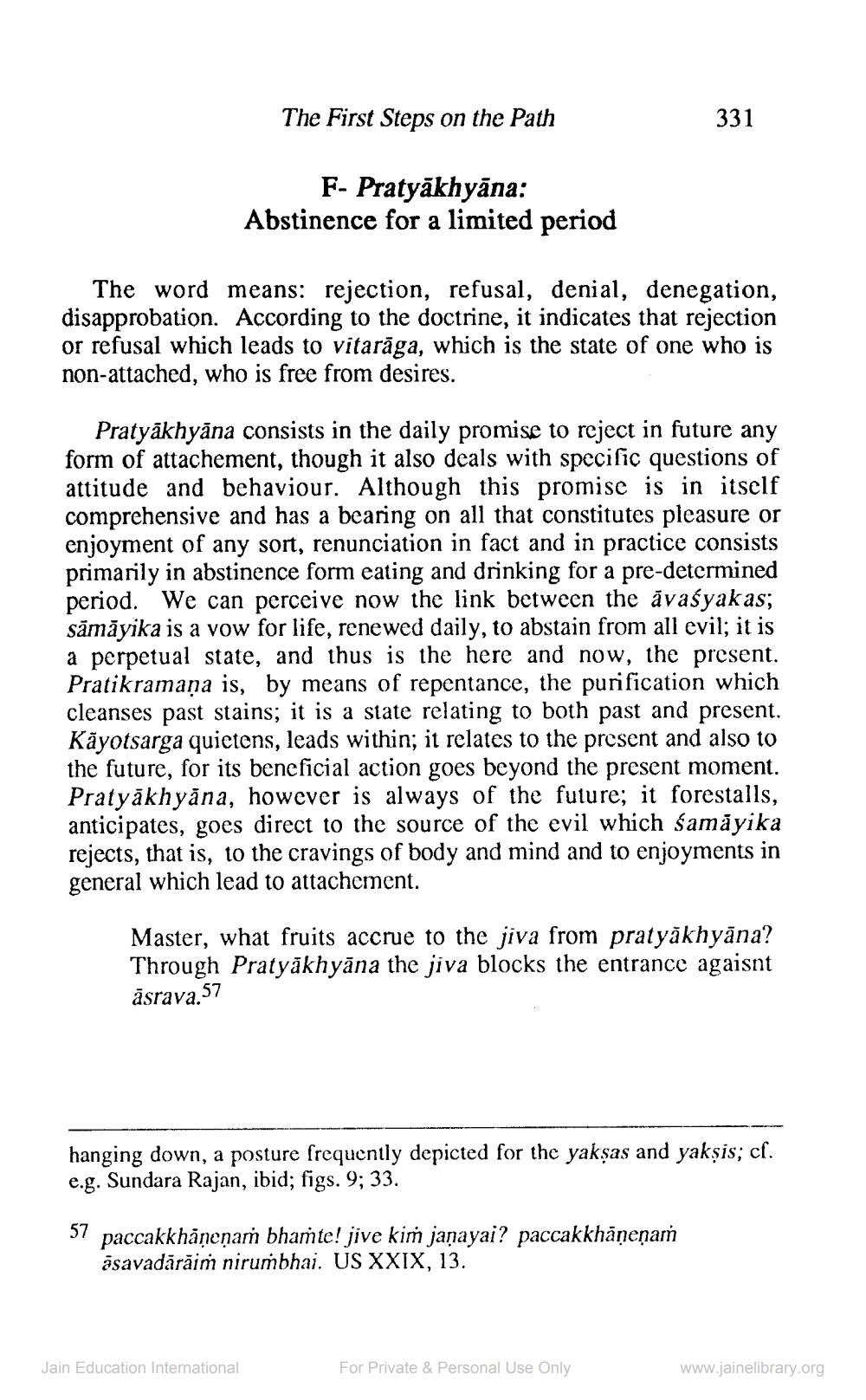________________
The First Steps on the Path
331
F- Pratyākhyāna: Abstinence for a limited period
The word means: rejection, refusal, denial, denegation, disapprobation. According to the doctrine, it indicates that rejection or refusal which leads to vitarāga, which is the state of one who is non-attached, who is free from desires.
Pratyākhyāna consists in the daily promise to reject in future any form of attachement, though it also deals with specific questions of attitude and behaviour. Although this promise is in itself comprehensive and has a bearing on all that constitutes pleasure or enjoyment of any sort, renunciation in fact and in practice consists primarily in abstinence form eating and drinking for a pre-determined period. We can perceive now the link between the āvaśyakas; sāmāyika is a vow for life, renewed daily, to abstain from all evil; it is a perpetual state, and thus is the here and now, the present. Pratikramana is, by means of repentance, the purification which cleanses past stains; it is a state relating to both past and present. Kāyotsarga quictens, leads within; it relates to the present and also to the future, for its beneficial action goes beyond the present moment, Pratyākhyāna, however is always of the future; it forestalls, anticipates, goes direct to the source of the evil which śamāyika rejects, that is, to the cravings of body and mind and to enjoyments in general which lead to attachement.
Master, what fruits accrue to the jiva from pratyākhyāna? Through Pratyākhyāna the jiva blocks the entrance agaisnt āsrava.57
hanging down, a posture frequently depicted for the yakșas and yaksis; cf. e.g. Sundara Rajan, ibid; figs. 9; 33.
57 paccakkhāņeņaṁ bhaste! jive kim janayai? paccakkhāņeņań
asavadārāim niruṁbhai. US XXIX, 13.
Jain Education International
For Private & Personal Use Only
www.jainelibrary.org




